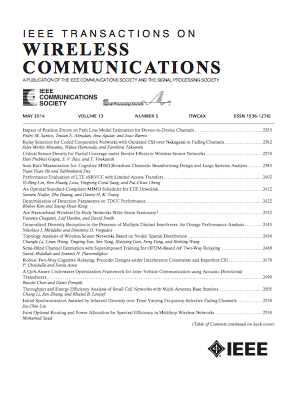多智能体计算-车辆边缘计算中的能效优化:非合作与合作解决方案
IF 10.7
1区 计算机科学
Q1 ENGINEERING, ELECTRICAL & ELECTRONIC
引用次数: 0
摘要
车辆边缘计算(VEC)通过在边缘部署计算和能源资源,推动了计算密集型和延迟敏感型车辆服务的扩散。然而,由于不可预测的环境动态和部分可观测性,边缘资源的开发面临挑战。为此,本文通过动态调整卸载策略,研究双时间尺度VEC场景下的计算能效问题。在将该问题建模为分散的部分可观察马尔可夫决策过程(Dec-POMDP)的基础上,分别提出了基于多智能体强化学习(MARL)的非合作和合作卸载方案。具体而言,非合作方案采用多智能体独立的近端策略优化(IPPO),使车辆用户设备(vue)能够以完全分布式的方式学习策略,而不需要任何信息共享。将多智能体共享PPO与图关注网络(MAPPO-GAT)相结合,实现智能体间关系的协作学习,实现历史学习经验的共享。此外,我们比较了计算复杂度并分析了收敛性。仿真结果表明,在卸载延迟和卸载能量消耗之间的权衡方面,所提出的合作解决方案优于非合作解决方案,且合作学习的训练开销适中。本文章由计算机程序翻译,如有差异,请以英文原文为准。
Multi-Agent Computing-Energy-Efficiency Optimization in Vehicular Edge Computing: Non-Cooperative Versus Cooperative Solutions
Vehicular edge computing (VEC) has driven the proliferation of computation-intensive and delay-sensitive vehicular services by deploying computing and energy resources at the edge. However, the exploitation of edge resources faces challenges due to unpredictable environmental dynamics and partial observability. To this end, this paper investigates the computing energy efficiency (CEE) problem in twin-timescale VEC scenarios by dynamically adjusting the offloading policy. Based upon modeling the problem as a decentralized partially observable Markov decision process (Dec-POMDP), a pair of non-cooperative and cooperative offloading solutions are proposed relying on multi-agent reinforcement learning (MARL), respectively. Specifically, the non-cooperative solution employs multi-agent independent proximal policy optimization (IPPO) to enable vehicular user equipments (VUEs) to learn their policies in a fully distributed manner without any information sharing. By contrast, the cooperative solution combines the multi-agent shared PPO with graph attention networks (MAPPO-GAT), where the relationship among agents is learned cooperatively and the historical learning experience is shared. Additionally, we compare the computational complexity and analyze the convergence. Simulation results show that in terms of the trade-off between offloading delay and offloading energy consumption, the proposed cooperative solution is superior to the non-cooperative counterpart with the cost of moderate training overhead for cooperative learning.
求助全文
通过发布文献求助,成功后即可免费获取论文全文。
去求助
来源期刊
CiteScore
18.60
自引率
10.60%
发文量
708
审稿时长
5.6 months
期刊介绍:
The IEEE Transactions on Wireless Communications is a prestigious publication that showcases cutting-edge advancements in wireless communications. It welcomes both theoretical and practical contributions in various areas. The scope of the Transactions encompasses a wide range of topics, including modulation and coding, detection and estimation, propagation and channel characterization, and diversity techniques. The journal also emphasizes the physical and link layer communication aspects of network architectures and protocols.
The journal is open to papers on specific topics or non-traditional topics related to specific application areas. This includes simulation tools and methodologies, orthogonal frequency division multiplexing, MIMO systems, and wireless over optical technologies.
Overall, the IEEE Transactions on Wireless Communications serves as a platform for high-quality manuscripts that push the boundaries of wireless communications and contribute to advancements in the field.

 求助内容:
求助内容: 应助结果提醒方式:
应助结果提醒方式:


